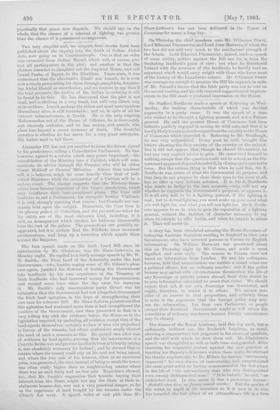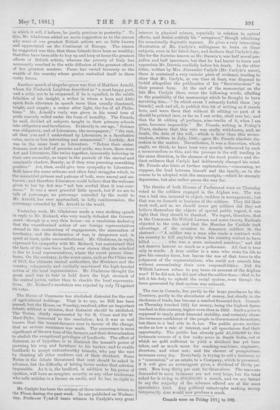The dinner of the Royal Academy, held this day week,
was a. sufficiently brilliant oue, Sir Frederick Leighton, as usual, showing a singular tact and judgment in his choice of speakers, and the skill with which he drew them out. Mr. Gladstone's speech was thoughtful, as well as both terse and graceful. After renewing his respectful protest against the new practice of toasting her Majesty's Ministers within those walls, he returned his thanks emphatically to Mr. Millais for having " enormously improved " his own chance of immortality, and congratulated the same great artist on having commemorated the last phase in the life of " the extraardivary man who was distinguished. even among distinguished men." "It is, indeed," he said, "an unfinished work. In this sense it was a premature decease : Abetalit atra dies, ac funere mereit acerbo.' But the genius of the artist, as rapid in its execution as it is sure in its aim, has recorded the last phase of an extraordinary life in a form
in which it will, I believe, be justly precious to posterity." To this, Mr. Gladstone added an acute suggestion as to the reason why some of our greatest British artists are so little known and appreciated on the Contineut of Europe. The reason he suggested was this, that these Islands have been so wealthy, that they have been able to buy up and keep at home the greatest efforts of British artists, whereas the poverty of Italy has necessarily resulted in the wide diffusion of the greatest efforts of her greatest masters. Fame has varied inversely as the wealth of the country whose genius embodied itself in these costly forms.



































 Previous page
Previous page